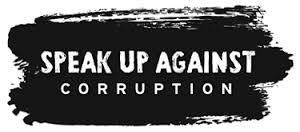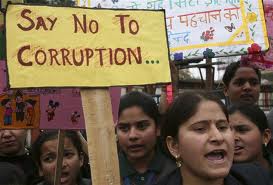Sunlight on Corruption: An Important Strategy in the Global Anti-Corruption Movement
 Everyone is against corruption. Everyone knows that corruption can stifle economic development and increase economic disparity and poverty. When government officials take money for their own benefit, they are robbing the law-abiding public of the benefits of public and private spending.
Everyone is against corruption. Everyone knows that corruption can stifle economic development and increase economic disparity and poverty. When government officials take money for their own benefit, they are robbing the law-abiding public of the benefits of public and private spending.
The international anti-corruption movement is strong and getting stronger. Some have argued that anti-corruption principles are important for promoting justice, fairness and the rule of law. No one can argue against those principles.
Prosecutors, enforcement agencies, development banks, politicians in some countries, the OECD and some significant NGOs like Transparency International, however, have led the fight against corruption.
The private sector has played only a minor role in this effort, primarily because they are reluctant to discus corruption for fear of prosecutions and investigations. Something needs to be done about that.
The private sector is on the front lines of the corruption battle but operates as a silent witness. Foreign officials demand bribes and other illegal payments. Yet there is no structured reporting system for bribery. Instead we are left with surveys and NGOs to uncover the nature and extent of bribery in the global economy.
Private businesses have an incentive to learn about bribery within their reporting systems. It is important for a healthy business culture to learn about instances of bribery and respond by targeting training and reinforcing company policies prohibiting bribery.
This information, however, sits within the company and is not reported anywhere except in response to generalized survey questions. If there was an effective mechanism for reporting bribery instances so that the alleged perpetrator could be reported to the foreign government and there was a meaningful response, companies would be more willing to report such occurrences.
Such reporting will only occur if the US government takes up the cause and brings it to the foreign government, and the foreign government takes action against the foreign official. Shedding light on these instances of bribery will have a major impact – foreign officials, the bribe requestors may actually cease making their demands.
The United Nations has estimated that bribery costs the global economy 1 trillion dollars each year, raising the cost of any foreign investment project by 20 percent.
In the face of these extraordinary costs, business leaders are generally silent on the issue. Why? Fear of liability is one real explanation. If a company can cite demands for bribes without paying them or attempting to pay them, the company should be in the clear. But companies are reluctant to go down that path.
The problem with this attitude is that the private sector is leaving the corruption issue for others to fight, and no one is willing or capable of fighting as effectively as global businesses. I am not trying to slight the great work of the UN, Transparency international or the OECD. I am suggesting that a significant player – global business leaders – is not at the table and not dedicating enough time and attention to the global anti-corruption movement.
Forward-thinking companies are embracing the anti-corruption movement by communicating and publicizing their own efforts to avoid corruption. No longer is bribery seen as “a cost of doing business,” or something that everyone recognizes is a necessary evil. In fact, companies that announce and adhere to a strict no tolerance policy are changing the dynamic in corrupt countries.
 Company-by-company change is slower than joint activity to stand against corruption, report instances of corruption and shine public attention on the issue. It reminds me of the old Three Stooges but when a Sergeant asks Moe, Larry and Curly to step forward if they want to volunteer for a dangerous mission – Moe and Larry take a step back, leaving Curly to “volunteer.”
Company-by-company change is slower than joint activity to stand against corruption, report instances of corruption and shine public attention on the issue. It reminds me of the old Three Stooges but when a Sergeant asks Moe, Larry and Curly to step forward if they want to volunteer for a dangerous mission – Moe and Larry take a step back, leaving Curly to “volunteer.”
Companies have to join together and build an alternative to bribery-infected contracts and business. If they can agree on that commitment, foreign officials may refrain from demanding bribes, especially when there is an effective mechanism for reporting the official and pointing domestic enforcement to investigate the official.
In the long-run, bribery is not an effective strategy for increasing revenues. Indeed, research indicates that companies that rely on bribery to secure business often find the projects won through bribery to have very low margins, even resulting in losses.
As the new dynamics play out, with the global anti-corruption movement gaining steam, global businesses have to step up and play a leading role in fighting corruption or risk losing their credibility in the economic and political landscape.















